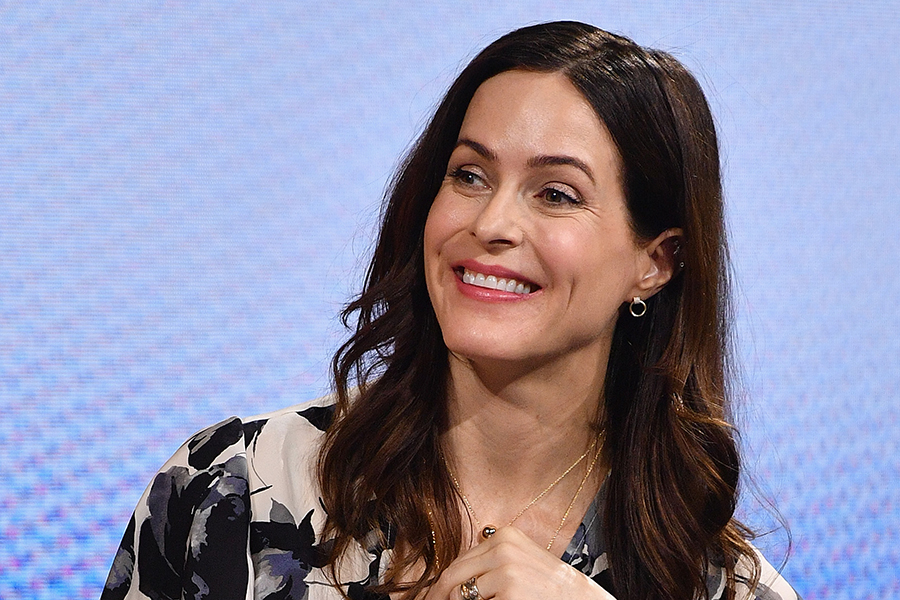In 2001, Chicago-based journalist Bethany McLean wrote a piece for Fortune magazine titled “Is Enron Overpriced?” It was the first in a series of stories questioning the blue-chip energy stock's value, and would help expose hundreds of millions in false earnings and mass accounting fraud by company executives.
After Enron declared bankruptcy, McLean co-authored a book about the scandal, The Smartest Guys in the Room: The Amazing Rise and Scandalous Fall of Enron. A documentary based on the book was nominated for an Academy Award in 2006.
McLean could have retired and dined out on her many prizes, but instead, she joined Vanity Fair as a contributing editor, and went on to write books on the financial crisis, the mortgage giants, and fracking. Her 2016 Vanity Fair story on Valeant was the foundation of Netflix’s “Dirty Money” episode on the disgraced pharmaceutical company.
Now, McLean is turning her inquisitiveness on her fellow reporters. In a new podcast from subscription-based upstart Luminary, Making a Killing, the former Goldman Sachs analyst sits down with the writers covering companies like Juul, Theranos, and Boeing, digging for the story behind the story á la the New York Times's popular The Daily. In the first episode, which aired yesterday, McLean interviews author Seth Godin (This Is Marketing) on Amazon's omnipotence. I caught up with her to chat about the process.
You're most well-known for your exposés on Enron. How did you catch wind of that story?
A source of mine, whom I’d cultivated for a long time, told me I should take a closer look at the company. He said, “We can't figure out how they make their money. Let us know if you can.”
I assume your background in finance helped you sleuth out some of that suspicious activity?
Absolutely. Especially at that time — I started in journalism in 1995 — I had a really odd background for a journalist. There weren’t many of us who had come from finance. It hurt me in some ways, because I did get myself a reputation for not being able to write well, which I blame on three years spent doing spreadsheets for 12 hours a day. But it certainly helped when it came to deciphering Enron.
Increasingly, it seems that Americans are both more suspicious of investigative reporters and more reliant upon them for checks on power. What do you see as the role of the investigative journalist today? Has the job gotten harder?
I don't think the role has changed at all, and I actually dislike the categorization of “investigative journalist.” I think every journalist is, or should be, an investigator.
America is more suspicious because of the suspicion that journalists bring bias to their work. Of course we do. Everyone has innate bias. But I think part of the job of a fact-based journalist is cutting through even her own biases. Most of the time, when journalists get it wrong, it’s because we get invested in a story, or want it to be a story when it isn’t, or because we’re rushing. I don’t think people get it wrong because they purposefully want to put out “fake news.”
As for whether the job is easier or harder, from what I’ve heard, inside the big papers, it’s the same as it ever was — maybe even better. The New York Times, the Wall Street Journal, and the Washington Post are figuring out the digital business model and supporting their journalists. The world of magazine journalism is very, very tough. It’s hard to find a publication that will invest in a big piece that may not pan out.
Recently, you've done deep dives on specific segments of the market — fracking, the mortgage crisis. But with this new podcast, you focus on a different company each episode. How are these conversations different from your other stories and books?
Well, I’m talking to other people about their work instead of doing my own! But seriously, I’ve covered business for more than two decades now, and I read a ton, so I feel like I’m a pretty good judge of what’s good and important business journalism. I want to celebrate that work and also delve deeper into the broader ramifications that many stories have, whether those ramifications be trust in business, fraud, countering short-termism, etc.
What should we expect in the first couple episodes?
I’m interviewing Joe Nocera on Juul. Does a business have a responsibility to be good for society? Should it? And I’m interviewing Alex Gibney, who made the recent documentary on Theranos called The Inventor. We’re talking about the fine line between a visionary and a fraudster.
Why choose [subscription-based platform] Luminary?
I'm working with a company called Pushkin, which was founded by journalists Jacob Weisberg and Malcolm Gladwell. They brought my podcast to Luminary. I thought the subscription model was really interesting because I've seen the compression in advertising rates that has hit every form of media, from print to video, so there's something appealing about building a subscriber base. And they're willing to put advertising behind their podcasts.




